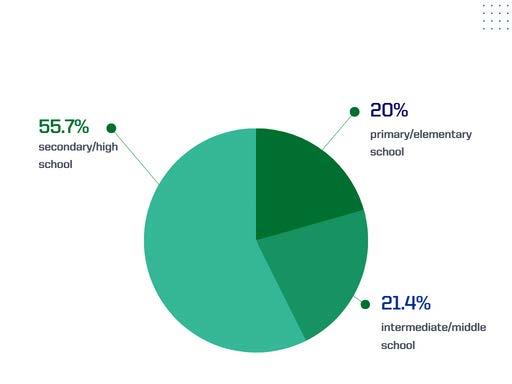Do school-based depression prevention programs support youth?

Our overview of reviews found that school-based depression prevention programs may reduce the risk of depression and severity of depression symptoms.

On average, students in depression prevention programs had a 33% reduced risk of depression and a slight reduction in symptoms compared to students in control groups.
Will these programs work for my school?
Assuming your school and students are similar to those in the review, you are more likely than not to benefit from implementing a program. However, we cannot guarantee that it will work.
Future research is needed to better understand which students and schools benefit the most from which programs.

Estimated probability that your students' average risk of 83% 70% depression and severity of for risk of for severity of symptoms will improve after depression symptoms program implementation.

hedcoinstitute.uoregon.edu/depression
Which Programs Did We Review?
We reviewed prevention programs focused specifically on reducing depression that were offered during the school day. We excluded studies focused on health promotion treatment or on programs that were offered outside of school hours.
Studies took place in:

The 70 included primary studies provided data on 44,519 students

The majority of programs were facilitated by teachers, behavioral health personnel, or researchers.
69% of studies didn't report any race/ethnicity
Across studies that reported race/ethnicity – just 31% of studies – on average, 51% of students were white (SD = 37.8%). Looking for more information on programs?
For more information on the specific programs and their characteristics - cost, student age, curriculum goals - visit our Program Profiles supplement: hedcoinstitute.uoregon.edu/depression
Australia -35.7% 25 studies United States -31.4% 19 studies United Kingdom -5.7% 4 studies Netherlands -4.3% 3 studies Other locations -23.2% 16 studies total
Race/Ethnicity
Support: Core funding for the HEDCO Institute for Evidence-Based Educational Practice is provided by donor funds to the University of Oregon. Financial support for this study was provided by the Ballmer Institute for Children’s Behavioral Health. The content is solely the responsibility of the HEDCO Institute and does not necessarily represent the official views of the Ballmer Institute for Children’s Behavioral Health. https://doi.org/10.17605/OSF.IO/W6ZYS






